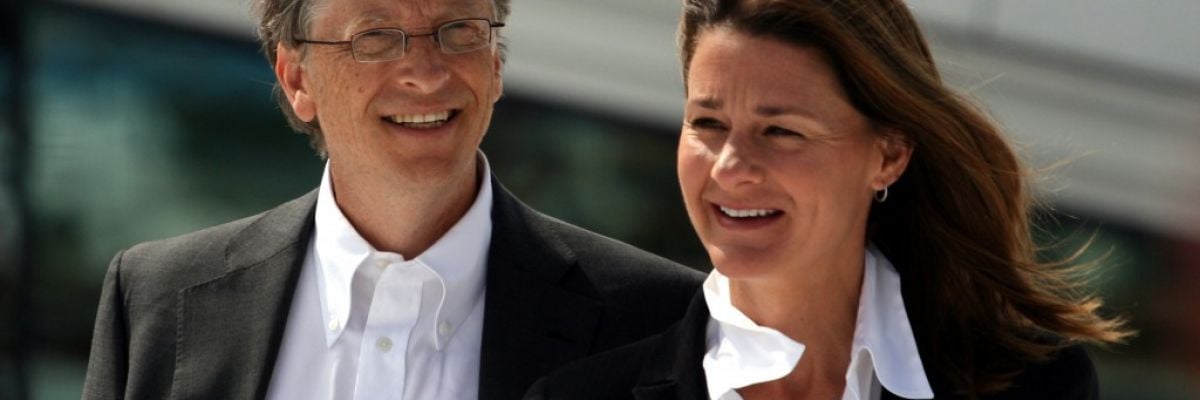
Over the last few days Catholic radar screens have picked up an interview Bill Gates had with Rolling Stone magazine. Here are the questions and answers that have some Catholics talking:
RS: You’re a technologist, but a lot of your work now with the foundation has a moral dimension. Has your thinking about the value of religion changed over the years?
BG: The moral systems of religion, I think, are super-important. We’ve raised our kids in a religious way; they’ve gone to the Catholic church that Melinda goes to and I participate in. I’ve been very lucky, and therefore I owe it to try and reduce the inequity in the world. And that’s kind of a religious belief. I mean, it’s at least a moral belief.
RS: Do you believe in God?
BG: I agree with people like Richard Dawkins that mankind felt the need for creation myths. Before we really began to understand disease and the weather and things like that, we sought false explanations for them. Now science has filled in some of the realm—not all—that religion used to fill. But the mystery and the beauty of the world is overwhelmingly amazing, and there’s no scientific explanation of how it came about. To say that it was generated by random numbers, that does seem, you know, sort of an uncharitable view [laughs]. I think it makes sense to believe in God, but exactly what decision in your life you make differently because of it, I don’t know.
. . . . .
So what do we have here?
The Gates’s children go the Catholic parish that Melinda Gates attends. Bill sometimes attends too, but apparently not out of conviction. He subscribes to the myth (that’s what it is) that ancient man took up religion because he was afraid of things he saw around him in nature and that science largely has supplanted religion because science can explain just about everything (though Gates admits that science can’t explain “the mystery and beauty of the world”).
I think there is less substance here than some Catholic bloggers are finding. If you think about it, the wealthiest man in the world doesn’t have any more insight into that world than does the random man on the street—perhaps even less, if, like so many people wrapped up in technology, his mind is occupied with gadgets rather than with The Meaning of Things.
We do know that, while Melinda Gates is a Catholic, she hardly can be termed a solid Catholic. The foundation that she and Bill run is a major underwriter of abortion and abortion propaganda. So long as Bill and Melinda Gates send their money in that direction, we can be sure that their hearts and minds are not yet close to the heart and mind of the Church, even if they pass through a church door every Sunday.
The problem, at least with Bill Gates—perhaps also with Melinda, but she wasn’t interviewed so it’s harder to tell—is that he isn’t quite sane. Before you mistake what I’m saying, let me say that I’m making use of something Frank Sheed said in what I think was his best book, Theology and Sanity.
His very first sentence reads, “My concern in this book is not with the will but with the intellect, not with sanctity but with sanity.” A few pages later he says, “To overlook God’s presence is not simply to be irreligious; it is a kind of insanity, like overlooking anything else that is actually there. . . . God is not only a fact of religion: he is a fact. Not to see him is to be wrong about everything, which includes being wrong about one’s self.”
Sheed goes on to note that modern man, who thinks himself supremely sane, is ignorant of or actually rejects half of reality: the supernatural half. In this sense modern man can be said to be insane, and Bill Gates is a supremely modern man.
While he may tag along with his family to church, Gates seems to have no real appreciation of the supernatural. For him, the natural seems super enough. In this he is like many people, so this is not to lay special blame on him.
In the way Sheed was using the term, and in the way that I’m using the term, we can say that many people we run across are insane: They see and accept the natural or the visible; they don’t see and so reject the supernatural or the invisible. Because they reject half of reality, they end up having to live myths of their own making.



